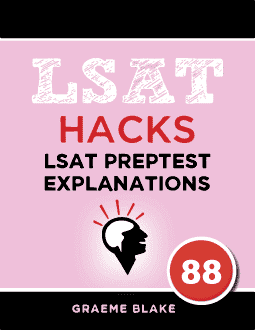QUESTION TEXT: The poet E. E. Cummings stood for the individual human…
QUESTION TYPE: Sufficient Assumption
CONCLUSION: Cummings stood for individual humans being against regimentation and standardization, which is against something essential to his work.
REASONING: Metaphors require literal language, which requires regimentation.
ANALYSIS: The logic of metaphor ? literal language ? regimentation is sound, but doesn’t give us anything to link Cummings’ work to this chain. If Cummings’ work didn’t include metaphors, then this argument falls apart.
___________
- We don’t care about what all poets use.
- CORRECT. For Cummings to stand against something essential to his work (which was literal language), that means that metaphor needs to be essential to his work.
- This is an illegal reversal of the stimulus. The stimulus gives us, if metaphor ? literal language; C says, if literal language ? metaphor.
- We’re not concerned with whether or not poetry can be regimented or standardized. This doesn’t relate at all to something “essential” to Cummings’ work.
- From the stimulus we’d have to assume that Cummings did use literal language. This is irrelevant.
Recap: The question begins with “The poet E E Cummings stood for the individual human”. It is a Sufficient Assumption question. Learn more about LSAT Sufficient questions in our guide to LSAT Logical Reasoning question types.


Leave a Reply